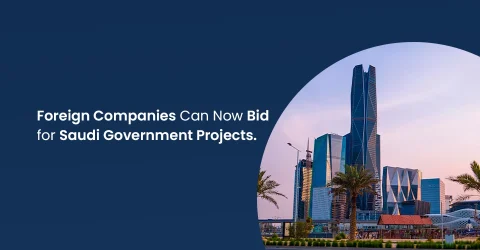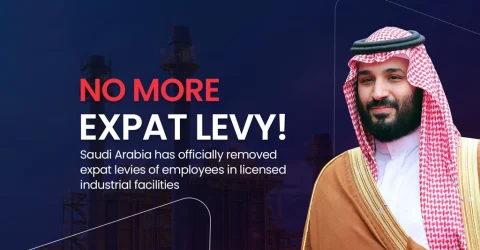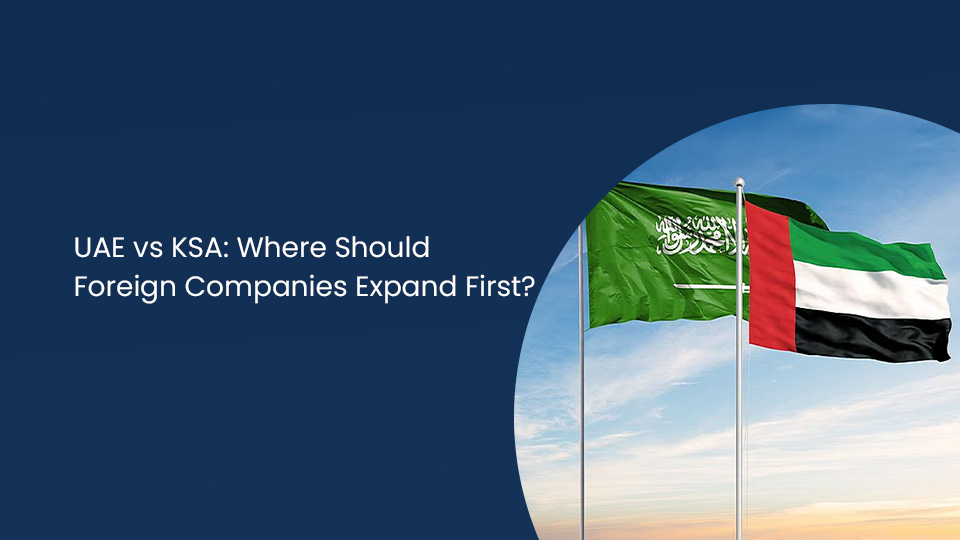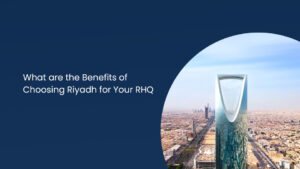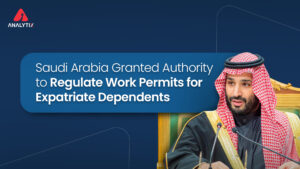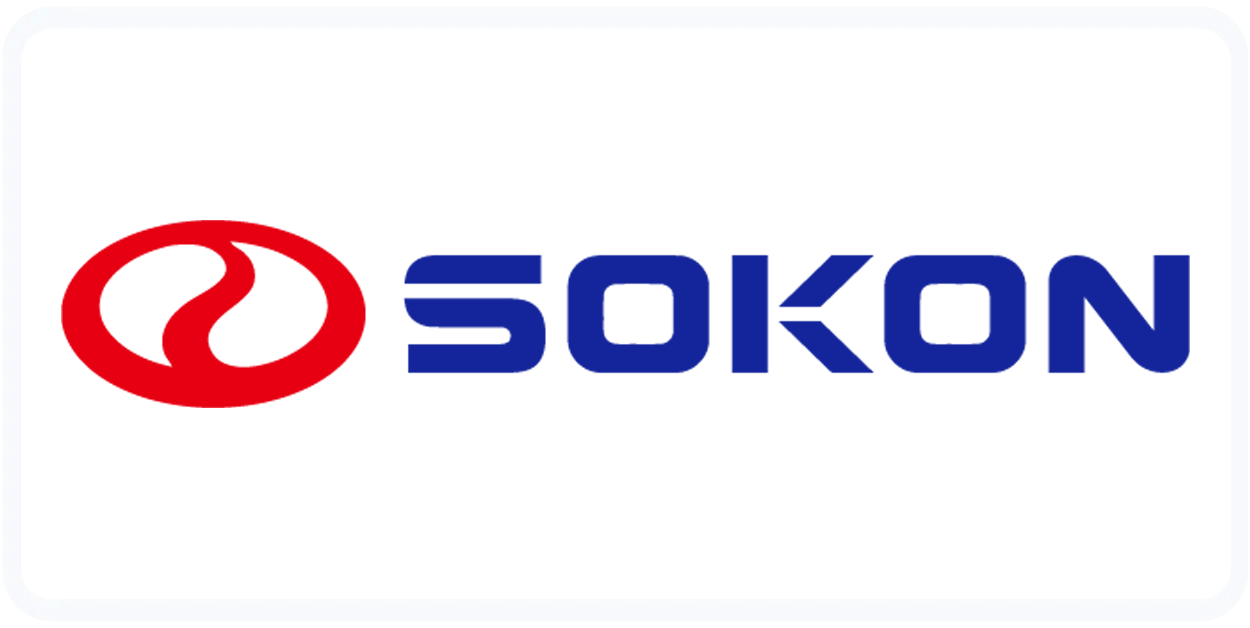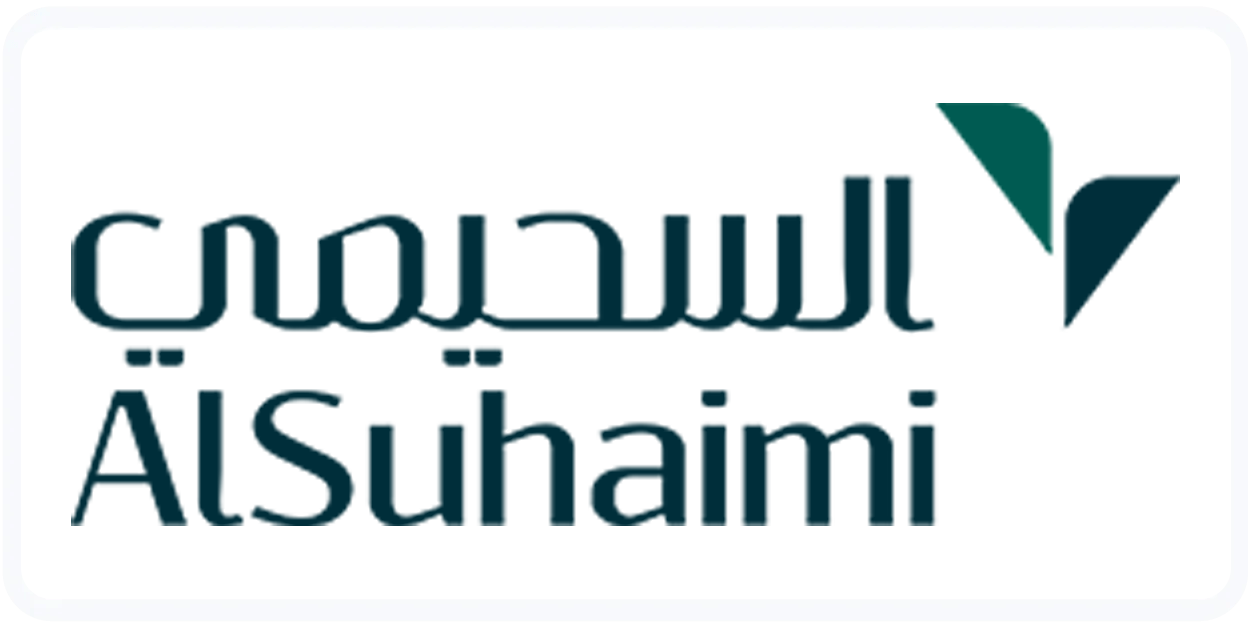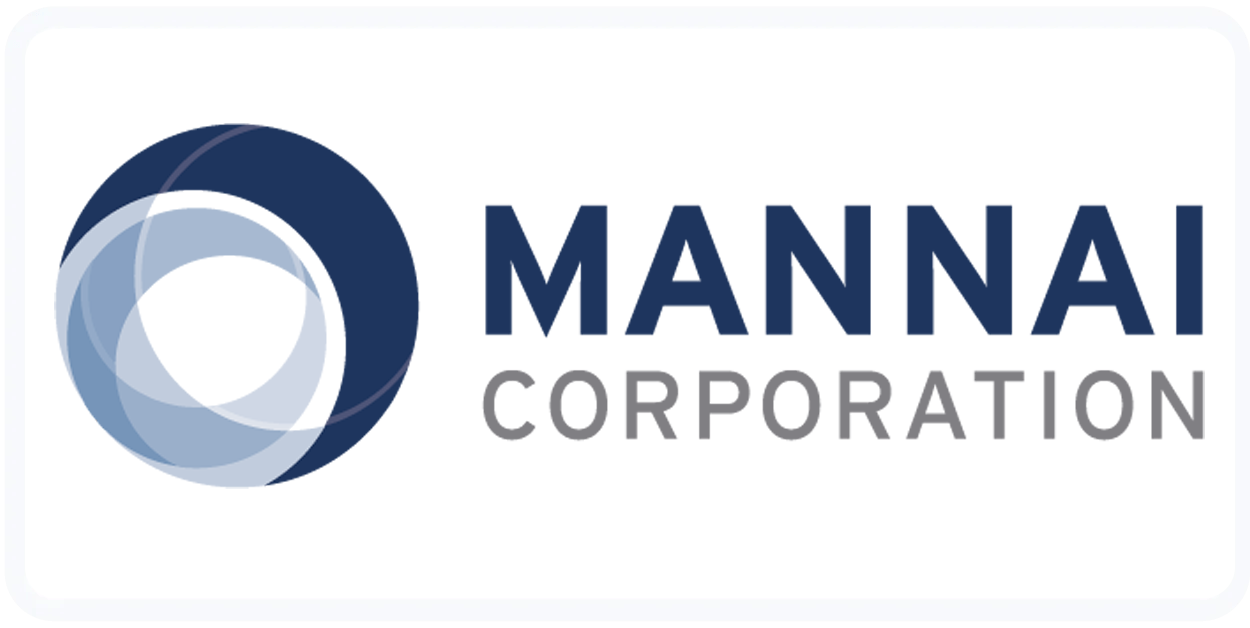The Middle East is undergoing transformation and emerging as a central hub for global business setup, with Saudi Arabia and the UAE being equally attractive destinations. Both countries have fast-growing economies, driven by ambitious reform plans, such as the Vision 2030 initiative in Saudi Arabia and the UAE’s extensive diversification efforts. Multinational companies looking to set up a foreign branch in Saudi Arabia or expand to the United Arab Emirates face unique benefits and challenges in each market.
However, ultimately, the question comes down to which country is right for your business. A question that we get asked a lot by our clients. So, in this article, we will evaluate both markets based on strategy, regulations, costs, and business culture, providing you with the insights necessary to make the right decision for your foreign investment.

Strategic Differences Between the UAE and Saudi Arabia
Saudi Arabia is the largest economy in the Middle East, supported by a large domestic market of over 35 million people and extensive efforts to diversify its economy. Vision 2030 has sped up the reforms in sectors like technology, tourism, entertainment, and renewable energy, while the country’s abundant oil resources maintain economic stability. Opportunities open up for companies focusing on major domestic consumption and government-led megaprojects when doing business in Saudi Arabia.
The UAE plays a different role – it positions itself as a hub for global trade, finance and innovation. Dubai’s position as a regional business gateway, along with the growing importance of Abu Dhabi’s financial sector, provides international companies with quick access to established networks across Africa, Asia, and Europe. Thanks to its small geography and world-class infrastructure, the Emirates supports efficient operations across multiple markets at the same time.
Geographical location impacts how each country accesses markets. Saudi Arabia’s borders with Iraq, Jordan, and other GCC countries offer overland trade routes, whereas the UAE’s coastline infrastructure supports maritime trade. Both countries gain from the continuous integration efforts of the Gulf Cooperation Council, but their approaches to improving regional connectivity differ greatly.

Business Setup and Regulations
The UAE is known for its efficient company formation processes, especially with many free zones that allow 100% foreign ownership and quick licensing. Dubai International Financial Centre, Abu Dhabi Global Market, and sector-specific free zones offer specific regulatory frameworks that can finalise business setups in just days or weeks.
Saudi Arabia has significantly updated its regulatory framework through the Ministry of Investment, allowing 100% foreign ownership in most sectors and considerably reducing bureaucracy. The Saudi Arabian General Investment Authority (SAGIA) has digitized numerous processes and implemented business-friendly policies to attract foreign businesses. While setting up in the Kingdom still needs more regulatory approvals than the UAE free zones, these additional steps often reflect its focus on sustainable, long-term growth for new business operations.
Recent reforms in Saudi Arabia have helped many sectors, including fintech, logistics, and renewable energy, with the government offering incentives for foreign investment. Companies wishing to open a foreign branch find both countries to be investor-friendly. The UAE excels in financial services and trading activities, while Saudi Arabia offers competitive benefits for manufacturing and businesses focused on the domestic market. Establishing a limited liability company has become easier for those considering business setup in Saudi Arabia.

Cost of Running a Business
The operational costs are different in the two markets, which greatly influences long-term profit calculations. Saudi Arabia offers major advantages with energy costs, with some of the lowest electricity and fuel prices globally, which helps manufacturing and logistics operations. Office rents in Riyadh and other major Saudi cities are typically 30-40% lower than similar locations in Dubai, and labour costs are also competitive thanks to a large local workforce.
The UAE has higher operational costs, especially in Dubai, where prime office spaces have high prices, and living expenses for expatriates are much higher. Still, the Emirates has no personal income tax, which can balance out the high operational costs for companies with many expatriate employees. Corporate tax rates are nearly the same between Saudi Arabia and the UAE, as both countries have adopted similar VAT systems and competitive business tax frameworks.
Riyadh is experiencing rapid growth in Grade A office space, whereas Dubai’s market has become well-established with its business districts. Companies that need industrial facilities often get better deals in Saudi Arabia’s developing economic cities and industrial zones. Visa costs and processing fees are also part of operational costs, with both countries offering attractive packages for multinational companies.
Check – Cost Calculator for Starting a Business in Saudi Arabia.

Business Culture
To succeed in Saudi Arabia, it is essential to understand the importance of relationship-driven business practices, where building trust and respecting local customs play a crucial role in long-term success. Business development typically follows formal procedures and established networks, but the speed has considerably increased, driven by Vision 2030 initiatives. The cultural landscape in the Kingdom is rapidly evolving, becoming more open to international business practices while still respecting traditional values. Setting up your business in Saudi Arabia often thrives on local partnerships and cultural understanding.
The UAE has a highly cosmopolitan business environment where various international practices blend well. Dubai and Abu Dhabi function at a fast global pace that many international executives find familiar. The decision-making process is usually straightforward and efficient, reflecting the Emirates’ status as a global business hub that invites foreign direct investment (FDI).
Both countries focus on workplace safety and legal protections for foreign businesses, but the UAE has more experience with expatriate workers, leading to more developed support systems. For companies concerned about the safety of the executives and the quality of life, both countries offer strong security and modern infrastructure; however, the UAE is slightly ahead due to its established expatriate communities and international schools. The Gulf Cooperation Council framework makes it easier for businesses to operate across these markets.
How Can Analytix Help
Whichever country you choose for your business, it is recommended not to enter either of these markets alone or without any expert guidance. Having the right guidance is essential to understanding local regulations, cultural differences, setup processes, and operational needs.
Our team offers thorough support, whether you choose to start operations in Saudi Arabia or the UAE, guaranteeing a smooth market entry and compliance with regulations for your successful expansion.
Conclusion
The Kingdom of Saudi Arabia (KSA) and the United Arab Emirates (UAE) offer exceptional opportunities to foreign businesses looking for growth in the Middle East, but success solely relies on aligning your choice with your specific business objectives and operational requirements. Companies that are looking for access to a large domestic market, reduced operational costs, and business opportunities in emerging sectors will find the foreign investment landscape in Saudi Arabia more advantageous. On the other hand, companies that want well-established international networks, simplified regulations, and a cosmopolitan business environment prefer the UAE’s investment environment.
Ultimately, the decision is based on various factors such as your sector, growth timeline, cost structure, and how comfortable your management team is with different business cultures. Instead of seeing these markets as rivals, many successful companies understand that they have a complementary role in broader regional strategies.
We hope we’ve covered the necessary aspects, but if you are still confused regarding which country to expand your business to, reach out to us, and we’ll give you the best strategy for your business, along with expansion plans and market insights.


